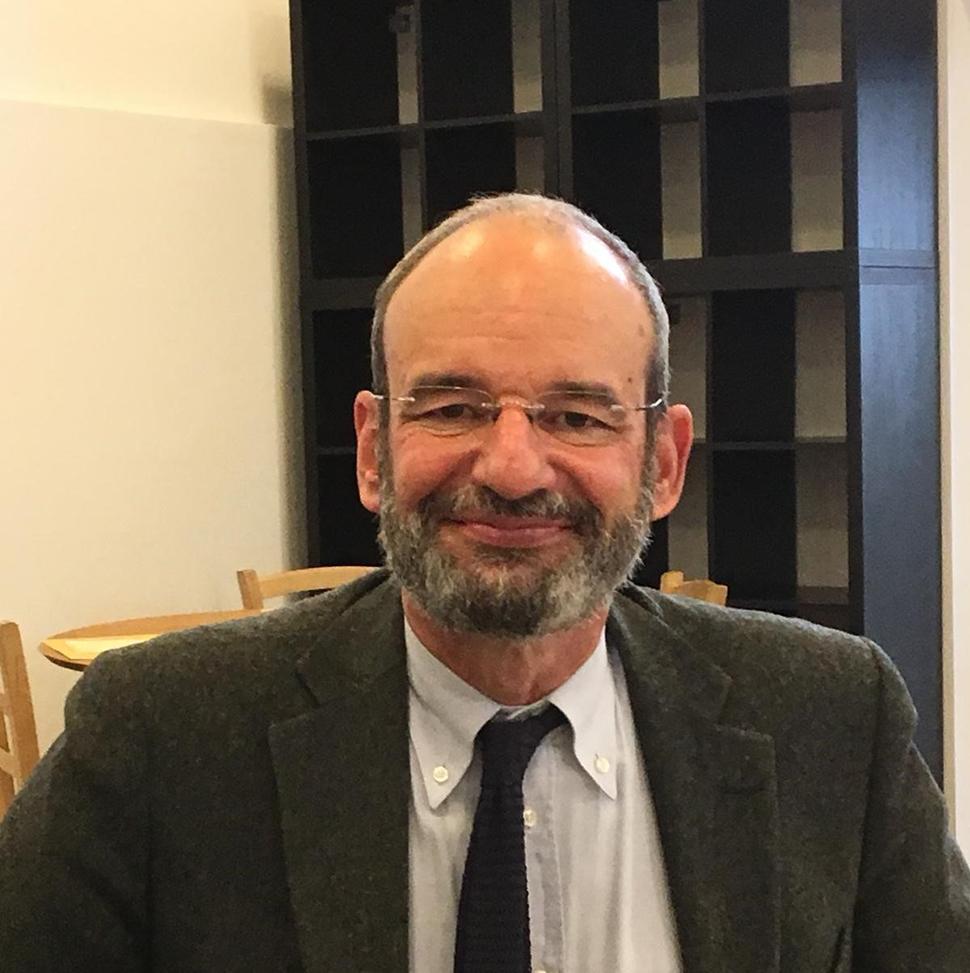
Piercesare Secchi
- Professor of Statistics at the Department of Mathematics, Politecnico di Milano and member of MOX
Piercesare Secchi is Professor of Statistics at the Department of Mathematics, Politecnico di Milano and member of MOX, the departmental laboratory in modelling and scientific computing. He was born in Milano, Italy, in 1962. After the diploma in classical studies from the Liceo-Ginnasio “A. Manzoni” in Milano, in 1988 he received the Laurea cum Laude in Mathematics from the Università di Milano, in 1993 the Doctorate in Methodological Statistics from the Università di Trento and in 1995 the Ph.D. in Statistics from the University of Minnesota.
From 1991 to 1997 he has been Assistant Professor in Statistics at the Università di Pavia while from 1998 to 2004 he has been Associate Professor in Probability at the Politecnico di Milano, where he became Full Professor in Statistics in 2005. From 2009 to 2016 he served as Director of the Department of Mathematics of the Politecnico di Milano; from 2011 to 2016 he has been a member of the Academic Senate of Politecnico di Milano and the Rector’s delegate for clusters and consortia. His recent research interests focus on statistical methods for: object oriented spatial statistics, classification of complex data, functional data analysis, urn schemes for Bayesian statistics.
He is member of the Società Italiana di Statistica, of the Institute of Mathematical Statistics and of the American Statistical Association. He joined many different important research projects both privately and publicly funded. He coordinated the statistical unit within the Aneurisk Project, financed by Siemens Medical Solutions and Fondazione Politecnico, for the functional data analysis of inner carotid centrelines aiming at the evaluation of aneurysms rupture risk. He directed the research activity sponsored by the Italian Regulatory Authority for Electricity and Gas (AEEG) for the development of statistical models and methods aiming at quality of service evaluation and control in energy distribution. He has worked on different blue sky research projects financed by ENI at the Politecnico di Milano.
He contributes to the development of Urbanscope, a new macroscope for the analysis of the digital traces generated by urban systems. He is among the founders of Moxoff, a spin-off of the Politecnico di Milano; since 2010 Moxoff employs mathematics, statistical analysis, and advanced algorithms and software to develop scientific models for business. Since 2011 he is member of the board of MIP, the Business School of the Politecnico di Milano. He is also member of the board of CISE since 2013. In 2014 he co-founded Mathesia, a platform to create innovation through the application of mathematics to problems in the business world. In 2015 he became President of the European Center for Nanomedicine (CEN).
In 2017 he has been appointed coordinator for PoliMI of the Center for Analysis, Decision and Society of the Human Technopole research infrastructure. In the same year he was part of the expert team Casa Italia, the mission structure of the Italian Government dedicated to prevention and security against natural risks.
Contatti
Pubblicazioni
-
09/2021 - Elsevier
A look at the spatio-temporal mortality patterns in Italy during the COVID-19 pandemic through the lens of mortality densities
With the tools and perspective of Object Oriented Spatial Statistics, we analyze official daily data on mortality from all causes in the provinces and municipalities of Italy for the year 2020, the first of the COVID-19 pandemic. By comparison with mortality data from 2011 to 2019, we assess the local impact of the pandemic as […]
-
08/2021 - Journal of the Royal Statistical Society
Social and material vulnerability in the face of seismic hazard: An analysis of the Italian case
The assessment of the vulnerability of a community endangerd by seismic hazard is of paramount importance for planning a precision policy aimed at the prevention and reduction of its seismic risk. We aim at measuring the vulnerability of the Italian municipalities exposed to seismic hazard, by analysing the open data offered by the Mappa dei […]
-
06/2020 - Springer
O2S2 for the Geodata Deluge
We illustrate a fewrecent ideas of Object Oriented Spatial Statistics (O2S2), focusing on the problem of kriging prediction in situations where a global second order stationarity assumption for the random field generating the data is not justifiable or the space domain of the field is complex. By localizing the analysis through the Random Domain Decomposition […]
-
11/2019
O2S2: A new venue for computational geostatistics
Applied sciences have witnessed an explosion of georeferenced data. Object oriented spatial statistics (O2S2) is a recent system of ideas that provides a solid framework where the new challenges posed by the GeoData revolution can be faced, by grounding the analysis on a powerful geometrical and topological approach. We shall present a perspective on O2S2, […]